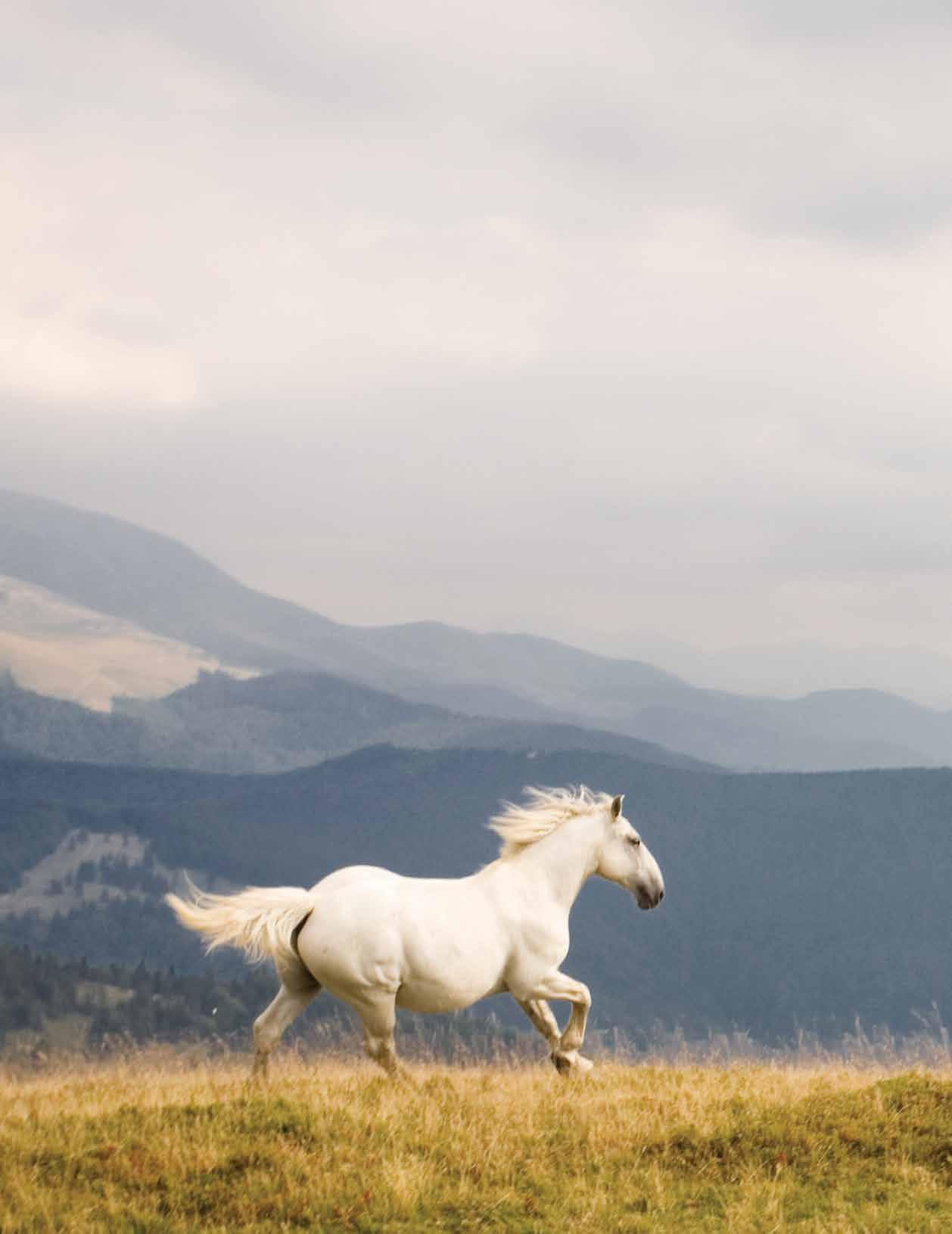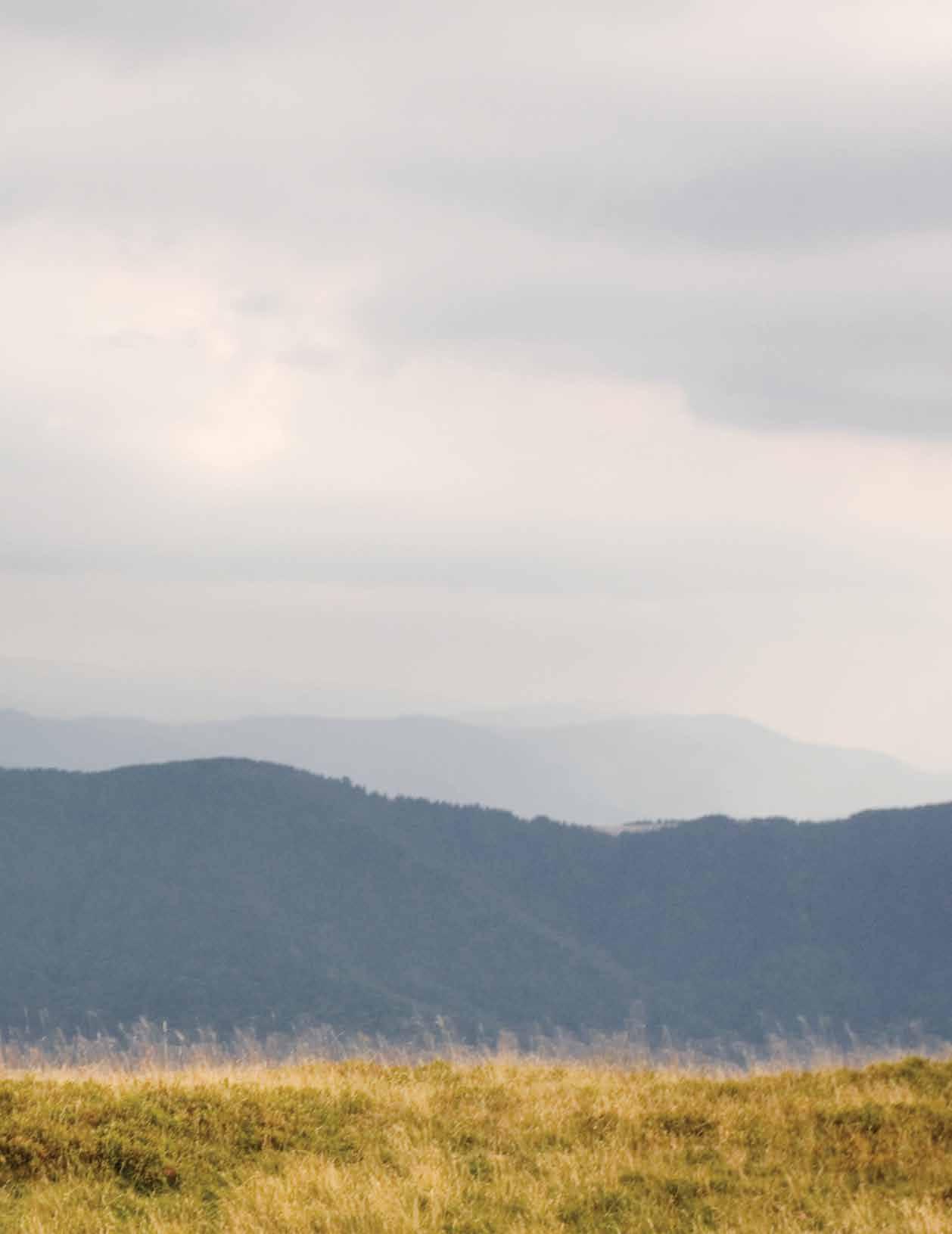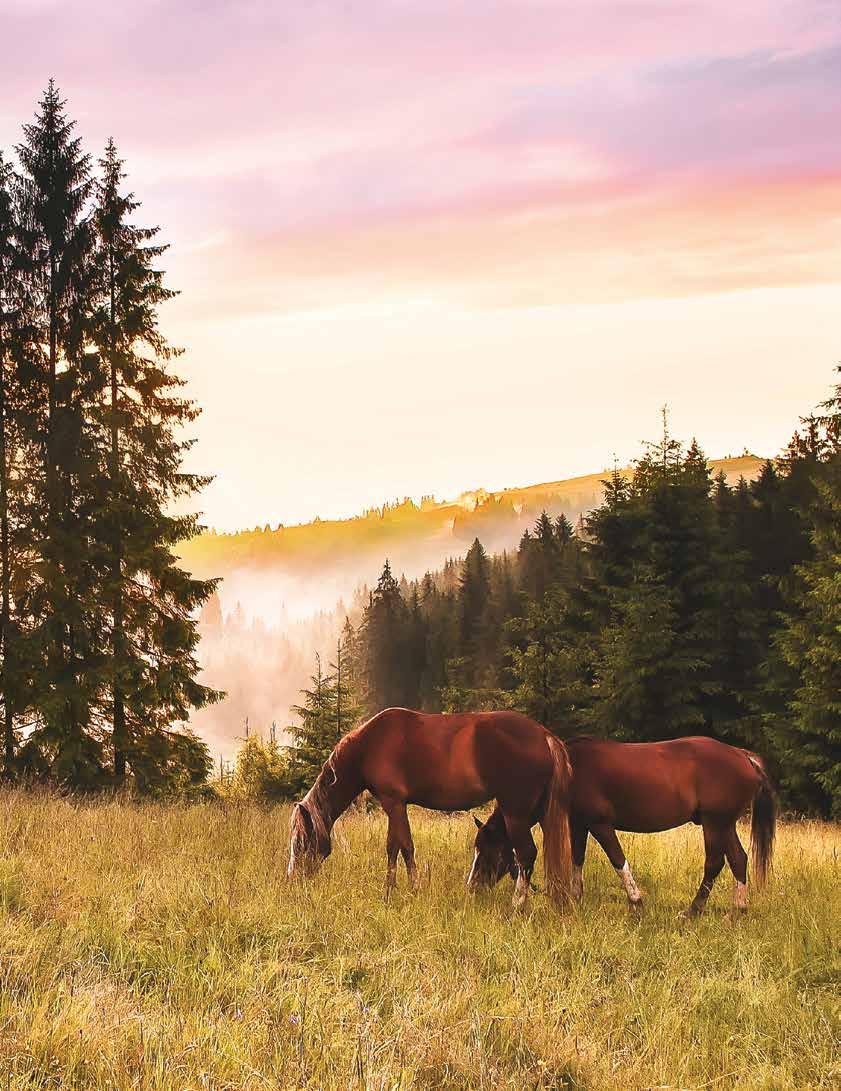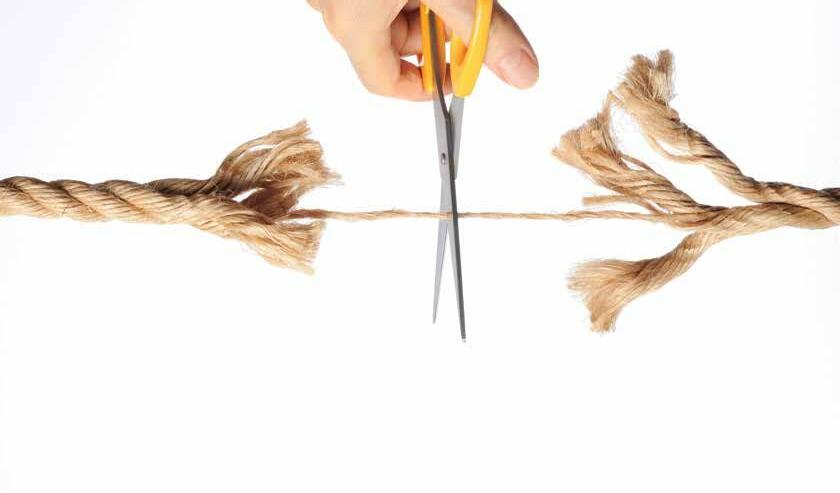
5 minute read
THE WILD HORSE OF GRIEF
The Wild Horse
OF GRIEF
BY KAREN NICOLA, M.A.
Stories of wild horses have an alluring appeal to me. Living wild and free in and of itself appears like a wonderful option when I am overwhelmed with responsibilities, suffering, and loss. Picture with me, the open range with no restrictions for as far as the eye can see. In the middle of rolling hills, high mountains, and low riverbeds the wild horse herd roams free. They are magnificent animals. And it is their wildness that raises my curiosity and desire to tame them.
Grief on the other hand is a wild thing that we often seek to corral, but never tame. It has no allurement to us, no majesty, or appeal. The best some of us can do with grief is to distract or numb the wildness of interruptive emotions with drugs or alcohol. Pain and grief are lumped together as experiences to avoid, disassociate from, or temporarily medicate. It is an unwelcomed, hurtful, wild thing.
Can we trust a wild horse? Can a wild horse trust us? Just think of the terror a wild animal has when it finds itself confined or approached by us. Think of the fear we feel when working with a wild horse. They encompass power that easily overtakes us. Grief can feel like the wild thing we cannot trust. But the interesting reality of grief is that while it is wildly unpredictable, random, and messy it does not have to be more powerful than us. It has great value and purpose. Yes, we can learn to trust our grief and pain. They are simply warning us that our broken heart needs attending to. We can trust that signal when we understand grief as something that is good and necessary. It is the process to tame our wildly broken heart and mind.


TRUSTING THE WILD HORSE OF GRIEF

I know it is frightening to trust a wild creature. I know our natural instinct is to run from something that hurts us, or we fear will harm us. I know our culture might be limited with trustworthy role models for healthy-healing grief. In fact, some cultural norms about grief might even cause more harm than good. I’d like to offer three ways you could consider trusting that your seemingly untamable grief will have a good outcome.
1. Trust that Grief and Pain have an Important Purpose
As a grief coach, one of my greatest satisfactions is when a client who is resisting her pain and grief comes to understand that grief is not her enemy. Not long ago, Stephanie came to me avoiding and attempting to lock away the wildness of her grief. When she began to trust that grief and pain have value and a purpose, her capacity to tame her grief grew.
Pain is simply an alarm warning us to pay attention to the grief. It is as if a wild horse cries out for help and by attending to the wound, that horse begins to trust a human and the human can begin to trust the horse. Denying our grief or pushing our pain away with substances or activities will only do us harm in the immediate and long part of our story. We do so much better when we take our pain to paper, spill it out there and trust it with the Creator who knows how to attend to the devastating wound of our broken heart.
2. Lean into the Discomfort
Leaning into our discomfort is a better way to live with the wildness of grief than numbing or distracting ourselves. Acknowledge that our hearts are full of emotions because the person who died was important to us. We can also acknowledge we have unresolved issues. We can choose forgiveness or an apology to anyone in our grief story, trusting that these choices bring healing to our suffering. The same Creator who knows how to heal, assures us that His forgiveness can tame the regrets and blame. The good thing about grief is that it is manageable and actually makes our lives better and more attractive to others, as we learn to live with our pain in honorable ways rather than dishonorable. Our hearts can experience healing. A wise person once said, “The only cure for grief is to grieve.” Earl Grollman.
3. Stay with the Uncertainty until Clarity Comes
Taming a wild horse takes incredible patience. Grieving well, attending to our emotions, questions, fears, and concerns requires patient intentional interaction. The very nature of loss and death often means we have experienced a sudden change. We can feel lost and uncertain about everything. Our mind is adjusting to a new way of interacting with our world. It is foggy and struggles to think clearly.
I met Henry about a year after his wife died. It was clear that his grief was untamed. He suffered with uncertainty regarding many unresolved issues in his past relationship with his wife. He had no direction in his life. When Henry learned that facing his grief was his best approach he began to read about healthy-healing grief, He chose to apply what he read. He attended a grief support group and learned more and continued to apply what he learned. He and grief were becoming acquainted, and Henry was taming it. Grief no longer wildly controlled his life.
TRUSTING THE GRIEF WHISPERER
I am a fan of the TV series called Heartland. It is about a horse ranch in Alberta, Canada. The main character understands horses and knows how to help and tame them. You probably know stories of people who work with horses. They are often called Horse Whisperers. Allow me to suggest that the Creator is our trustworthy Grief Whisperer. As we invite Him to guide us through our grief, He brings deep healing and new training that redirects our old habits. Our despair, anger, and regrets that show up uninvited are part of the healing path that can be transformed by our Grief Whisperer into joy, acceptance, and forgiveness. When these experiences of healing become our reality, the wildness of grief is tamed. We can have hope to live wildly free from what once terrified or wounded us. By His healing love we can live with the wildness of grief and become peace-filled with hearts ready to support others through their wild grief.







